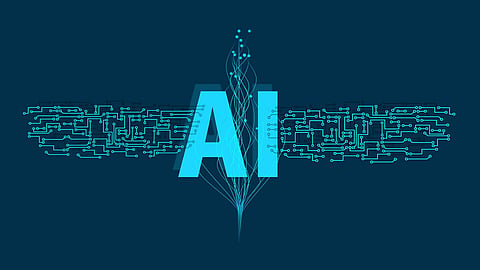

Ahead of the 97th Academy Awards today, it appears that the ABC of the ceremony will be Anora, The Brutalist and Conclave, despite their brief brush with controversy over the lack of intimacy coordinators, use of artificial intelligence and a jaundiced portrayal of the Catholic church, respectively.
Brady Corbet’s period epic, The Brutalist, about Hungarian architect and holocaust survivor László Tóth (Adrien Brody), who immigrated to the US to build a new life for himself, has bagged 10 nominations including for the best film, director, actor, supporting actress and supporting actor. The praise for its ambition and sweep, technical finesse and emotional resonance notwithstanding, it recently got mired in a fracas around one of cinema’s biggest bugbears—AI.
In January this year, the film’s editor Dávid Jancsó disclosed in an interview that AI voice-generating technology was used to correct the accents of Brady and Felicity Jones, who plays journalist Erzsébet Tóth, the architect’s wife.
Following widespread criticism and questioning of the authenticity of Brody and Jones’s acts, Corbet had to issue a statement underlining that their performances were completely their own. “They worked for months with dialect coach Tanera Marshall to perfect their accents. Innovative Respeecher technology was used in Hungarian language dialogue editing only, specifically to refine certain vowels and letters for accuracy. No English language was changed… The Brutalist is a film about human complexity and every aspect of its creation was driven by human effort, creativity and collaboration.”
Meanwhile, AI’s knocks grew louder on Indian cinema’s door in December 2024, with a Chandigarh-based startup, Intelliflicks Studios, announcing it would create a feature film with generative AI. Based on the 2014 novel Maharaja in Denims, the film would be about a young man who thinks he is a reincarnation of Ranjit Singh. Earlier in 2024, an AI-generated avatar of actor Uttam Kumar was seen in the Bengali film Oti Uttam.
These developments have brought to fore the ever-evolving debate on the use of AI in cinema. More so in light of the fact that it can’t be wished away. How to then negotiate the man-machine and technology-creativity polarities? How can something that has ‘artificial’ coded in its name approximate the organic? In light of the inconsistencies and limitations of technology, can the audio-visuals generated by AI entirely replace live action? Short videos might be fine, but is a full-length feature acceptable? How much of AI is too much and where should one draw the line?
Jancsó called for addressing the elephant in the room. “It is controversial in the industry to talk about AI, but it shouldn’t be… We should be having a very open discussion about what tools AI can provide us with,” he said, nodding towards saving on time, money and effort.
Back in 2023, AI had been a major issue in the historic Screen Actors Guild–American Federation of Television and Radio Artists and Writers Guild of America double-strike in Hollywood with new contracts formulated to ensure protection from AI, underlining it as a tool than a replacement for humans.
Last year, veteran screenwriter and executive committee member of the Screenwriters’ Association, Anjum Rajabali, told me that AI would not just be a threat to jobs in the Indian industry, but would change the definition of a story, approach to writing and culture of viewership. According to him, for a writer, the essential game is to turn an experience into an expression. “It’s a whole relationship of human empathy where the plot logic is there to carry [forward] the human experience,” he said. While the plot logic can be fed into AI, human experience can’t. “AI won’t write Manto, though it might write a Manto plot,” Rajabali said.
All this makes AI look like perfect fodder for a film. Yet, Indian films about AI have been few and far between. Many have remained in the realm of robotics, like last year’s Teri Baaton Mein Aisa Uljha Jiya; there were also the Malayalam film Monica: An AI Story and the app-centred IRaH. An interesting departure was the Netflix thriller CTRL, which looked at the dangers of manipulating individual lives through AI.
But the most fascinating so far has been Aranya Sahay’s indie film Humans in the Loop. Set in the world of data-labelling in a remote corner of Jharkhand running on the strength of Adivasi women, it doesn’t just take viewers behind the scenes to the processes shaping AI, but also places them in a parental, familial and societal context.
Nehma (Sonal Madhushankar) returns to her village after divorce with her two kids to work as a data labeller. While she tries to mend her strained relationship with her daughter Dhaanu (Ridhima Singh), she has to properly process raw data to help AI differentiate between basic things like ginger and turmeric, a good worm and a pest, and an Indian tribal woman from an American Indian. She realises that moulding and harnessing AI is similar to bringing up a child. Both demand immense perseverance, accountability and responsibility towards the larger good of humanity. In other words, a film that gives a compelling human face to technology.
Namrata Joshi
Consulting Editor
Follow her on X @Namrata_Joshi